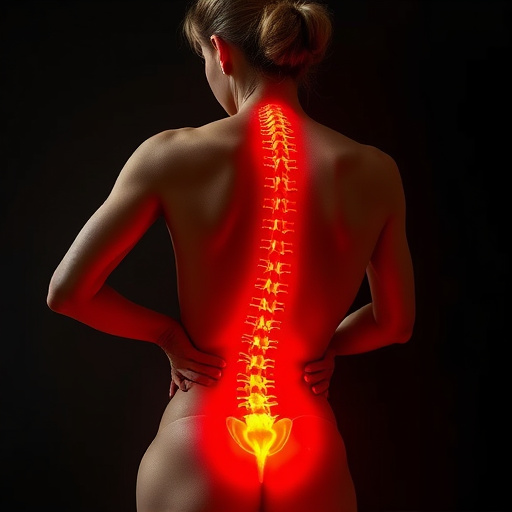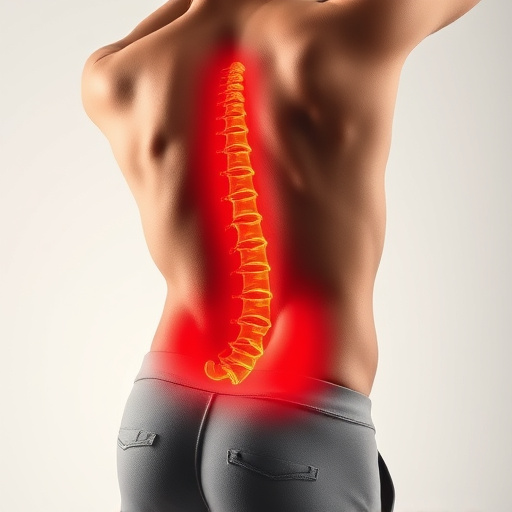Independent Medical Exams (IMEs) are crucial in managing spine injury workers comp cases, providing unbiased assessments of disability and guiding tailored treatment plans. IMEs assess nerve damage, spinal stability, and functional capacity, influencing care decisions and compensation awards for injured workers with complex spine injuries.
Independent Medical Exams (IMEs) play a pivotal role in managing and resolving spine injury claims within the workers’ compensation system. IMEs provide unbiased medical assessments, crucial for determining eligibility for benefits and the extent of compensation. This article delves into the significance of IMEs in spine injury cases, exploring the examination process, their impact on claims, and how they shape the outcome for affected workers seeking appropriate financial support and medical care.
- Understanding Independent Medical Exams in Spine Injury Cases
- The Process: How These Exams Are Conducted
- Impact on Workers Comp Claims and Benefits
Understanding Independent Medical Exams in Spine Injury Cases

Independent Medical Exams (IMEs) play a pivotal role in spine injury cases within the realm of workers’ compensation. These comprehensive evaluations are designed to assess the extent of an injured worker’s disability and guide treatment plans aimed at mobility improvement. Conducted by qualified medical professionals uninvolved in the patient’s primary care, IMEs offer an unbiased perspective on the patient’s condition. This is crucial, as it helps navigate complex legal and financial aspects of spine injury workers’ comp claims.
The purpose of these exams goes beyond simply diagnosing lower back pain to include evaluating nerve damage, spinal stability, and overall functional capacity. Based on the findings, recommended treatments can range from conservative measures like physical therapy and medication to more advanced interventions such as shockwave therapy for pain. The insights gleaned from IMEs are instrumental in ensuring that injured workers receive appropriate care while enabling insurers and legal professionals to make informed decisions regarding compensation and claim resolution.
The Process: How These Exams Are Conducted

Independent medical exams are a crucial step in the process of spine injury workers comp claims. These thorough evaluations are conducted by qualified healthcare professionals who are impartial to either the employee or employer. The purpose is to provide an objective assessment of the injured worker’s condition, specifically focusing on any spinal damage and its impact. During the exam, the specialist will review the patient’s medical history, perform a physical examination, and order relevant diagnostic tests such as X-rays or MRIs to confirm the presence and extent of spine injury.
The examiner then documents their findings, offering insights into the injured worker’s ability to function and work. This report is instrumental in determining the appropriate treatment plan, which may include recommendations for physical therapy or interventions aimed at pinched nerve relief. It also plays a pivotal role in guiding the progression from acute care to sports injury recovery, ensuring that workers receive the necessary support throughout their journey towards rehabilitation and return to work.
Impact on Workers Comp Claims and Benefits

Independent medical exams play a pivotal role in shaping the course of spine injury workers’ compensation claims. These comprehensive assessments, conducted by neutral experts, provide an unbiased view of an injured worker’s condition. This is particularly crucial given the complex nature of spine injuries, which can manifest as chronic pain, including neck pain relief eluding many patients. The exam results can significantly influence the benefits awarded to the claimant. For instance, a thorough evaluation might distinguish between temporary and permanent disabilities, impacting compensation levels and duration of support.
Furthermore, these exams facilitate a more precise diagnosis, which is essential for effective treatment plans, including sciatica treatment and sports injury recovery. By offering a clear understanding of the extent of the injury and its impact on the individual’s life, independent medical professionals contribute to fair and evidence-based decisions regarding workers’ comp benefits. This process ensures that injured workers receive appropriate care and support tailored to their specific needs, whether it’s managing neck pain or rehabilitating from a sports injury.
Independent medical exams play a pivotal role in managing and resolving spine injury cases within the realm of workers’ compensation (spine injury workers comp). By providing unbiased medical assessments, these exams help navigate complex claims, ensuring fair benefits for injured workers. Understanding the process and impact is essential to foster a system that supports and compensates those affected by spine injuries, facilitating their road to recovery and return to work.














